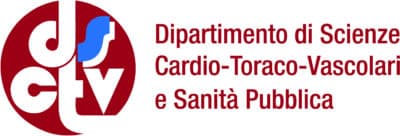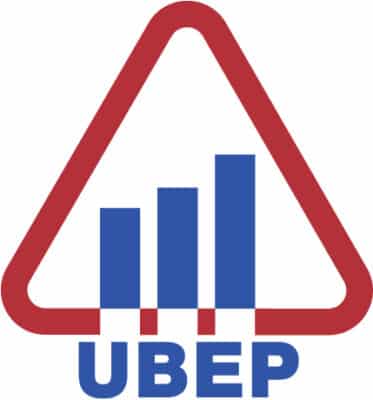

In the context of modern scientific and health research, both individual researchers and the entire health system (Legislative Decree no. 502/1992 and subsequent amendments) play a fundamental role in responding to the cognitive and operational needs necessary for the improvement of public health. To ensure the reliability of results and quality scientific dissemination, it is essential that researchers and health professionals acquire solid methodological skills. The ability to produce publications compliant with international standards is now an essential requirement for academic and professional success. However, these skills are not yet an integral part of traditional training paths. The Master in Biostatistics for medical research and scientific reporting offers a unique opportunity to fill this gap, providing essential practical and theoretical tools to successfully address clinical research and scientific publishing.
The course units of the Master’s Degree in Biostatistics for medical research and scientific publication include the following main topics: research methodology, basic statistical methods for observational and experimental studies, linear and logistic regressive models, survival analysis, cost-effectiveness assessment for healthcare interventions, study planning and sample quantity, drafting of scientific articles according to international guidelines, systematic reviews and meta-analysis.
The Master’s Degree in Biostatistics for Medical Research and Scientific Publication is aimed at forming a professional profile geared toward scientific research methodology, by acquiring competencies in study planning, data analysis, and scientific result publishing. This profile can be applied to any health-scientific research context, and to a clinical setting in particular.
Trained figures can find professional placement as: participants to the clinical research team established by healthcare institutions, research assistants, participants to interdisciplinary clinical and healthcare research groups belonging to public or private bodies as author/co-author of scientific reports/publications, interlocutors with pharmaceutical companies and CRO, and reviewers for professionals scientific magazines. These professional profiles can be placed in private or public facilities with research and/or scientific research support purposes (companies, hospitals, universities, labs, contract-based research organizations).
Since it is a first-level short specialisation degree, it is accessible to graduates and Bachelor’s degree holders, within the fields specified in the official call.
The Master’s Degree in Biostatistics for Medical Research and Scientific Publication provides training on:
Module 1: METHODOLOGY IN SCIENTIFIC RESEARCH
Scientific method in producing evidence in scientific research. Historical evolution of the theory of knowledge and of the philosophy of science. Inductive and deductive method. Hypothesis corroboration.
Module 2: DATA COLLECTION, MONITORING AND FILING
Information and IT systems. Databases. Production, control and data filing tools. Personal and sensitive data security and treatment.
Module 3: BASIC STATISTICAL METHODS
Modern methods to describe and model data.
Module 4: STATISTICAL ANALYSIS
Introduction to the use of statistical software.
Module 5: OUTCOME MEASUREMENTS IN OBSERVATIONAL AND EXPERIMENTAL STUDIES
Analysis and description of category and quantity-based outcome variables in observational studies and clinical trials.
Module 6: COST-EFFECTIVENESS ASSESSMENT OF INTERVENTIONS IN THE CLINICAL AND HEALTHCARE FIELD
Analysis and description of the cost-effectiveness in clinical and healthcare trials.
Module 7: STUDY PLANNING AND SAMPLE QUANTITY
Study planning, sampling quantity determination and study power.
Module 8: RESEARCH PROTOCOL IN OBSERVATIONAL AND EXPERIMENTAL STUDIES
Guidelines to draft a research protocol in observational or experimental studies.
Module 9: SCIENTIFIC REPORTS AND ARTICLES
Guidelines to draft reports and scientific articles to publish the results of a research.
The Master is online, and it can be followed also by people working full time, since it is provided on-demand, through UniPD’s multimedia Moodle platform.
It has been designed for students and professionals who want to combine other professions and activities with the need to qualify or further specialize. There will be a frequent and easy interaction between students and professors, through Moodle’s Forum.
The course is annual and video-lessons will be issued between November and May. The course is divided into several 4-week modules; at the end of each module, attendees will have the chance to review their video-lessons and complete their homework (in asynchronous mode) to ascertain the competencies they’ve acquired.
The project work to discuss the final exam in September will be drafted between June and July, and it may include cases that specifically interest the student, as agreed with the tutor.
The final exam is always discussed online, on the Zoom platform.
For more information on the Directors and Professors, and for useful insights on the Master’s Degree in Biostatistics for Medical Research and Scientific Publication, here’s the presentation video: Biostatistics for Research and Scientific Publication | Department of Cardiothoracic-Vascular Sciences and Public Healthcare | University of Padua (unipd.it)
The general ranking of merit for the academic year 2025/26 will be published on the Italian page of this Master according to the timing provided in the Call.
Information
FAQ
There will be no traineeship, as they are deemed irreconcilable with the profile of the Master’s attendees. However, students will have the chance to tackle actual scientific matters and databases, proposed by the Direction during the lessons and the project works. There will be a final project work that can be completed also on the student’s workplace analysis and data. The topic will be agreed with the course’s professors.
The selection is based on qualifications only. The procedures are described in the Master’s application notice that you can find on the University of Padua website.
The Master does not include an internship or traineeship: at the end of the course students will work on a Project Work regarding a a topic covered during the Master. The paper will be discussed online in front of an evaluation committee.
Attendance at the Master is mandatory; to obtain the degree and the certificate of attendance at the Master, it is compulsory to attend at least 70% of the online lessons.
- Exemption for students with disabilities
There is no registration fee for candidates with a certified disability and a disability between 66% and 100%, or for those in possession of a certification pursuant to Law no. 104. These students will only have to pay the pre-registration fee, insurance and stamp duty.
- Public Administration employees
Public Administration employees who enroll in the Master’s program benefit from a discount of 330 euros on the second installment of the registration fee.
- Registration for University staff
The possibility of supernumerary registration is foreseen for University staff in order to allow continuous and permanent updating. The registration fee for the technical-administrative staff of the University is equal to 20% of the expected quota. In the event that the technical-administrative staff possesses the admission requirements for the Course, once the course has been completed, they will be able to obtain a diploma or the relevant certificate. If they do not possess the admission requirements, they may be admitted as auditors and obtain a certificate of participation.
- Registration fee for auditors
The registration fee for auditors is equal to 50% of the course registration fee. At the end of the course, the auditor who has fulfilled the minimum attendance requirement may be issued a certificate of participation by the course director

